I would like to thank the kind people @PortPTUC for hosting this blog and giving me an opportunity to think out loud about issues that have been puzzling me for twenty years now. I plan to post every two weeks or so. Later entries will not be this lengthy, but today I wanted to sketch […]
Archive | notfeature
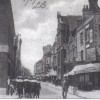
Greenwich Maritime Institute Research Seminar
Dr Rob James, from the Port Towns and Urban Cultures project team, will be delivering a paper entitled, “If there’s one man that I admire, that man’s a British tar”: The Navy, Identity and Leisure in Early-Twentieth Century Britain,” at the Greenwich Maritime Institute on Wednesday the 6th of November, 2013. The paper analyses popular […]
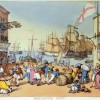
Call For Articles
The PTUC team at the University of Portsmouth welcome contributions to the new Port Towns and Urban Cultures website. We are seeking to expand knowledge and partnerships about life in port towns and cities in Britain and across the globe. The website provides a great opportunity for researchers to contribute to this growing discourse and […]
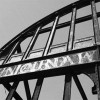
Centre for Port & Maritime History, Liverpool, Conference on ‘The “Otherness” of Port Cities,’ – 12 to13 September 2013
Three members of the Port Towns and Urban Cultures project team are delighted to be giving papers at the Centre for Port & Maritime History, Liverpool, conference on ‘The “Otherness” of Port Cities,’ 2013. This is the second conference from the Centre for Port & Maritime History, which is a collaborative venture between The University […]
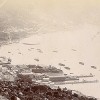
The Culture of a Victorian Coaling Station
It is well known that the late-Victorian navy was immensely popular in the public imagination and celebrated as a symbol of Britain’s power and empire. This link between the navy and the Empire very real, and the most obvious manifestation of this link was at overseas naval stations. British seamen would often seek British and […]
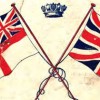
The British Empire on Celluloid – Alfred West’s “Our Navy”
John M. MacKenzie argued that early film transposed popular imperial propaganda from the music hall stage to the screen.[1] He cited the films of R. W. Paul and Cecil Hepworth on military life as being influential for amalgamating military spectacle and popular entertainment.[2] Often overlooked, filmmaker Alfred West from Gosport, Hampshire, was one of British […]


